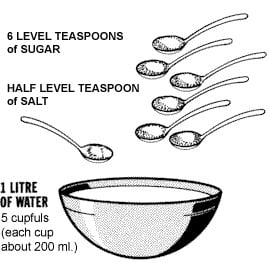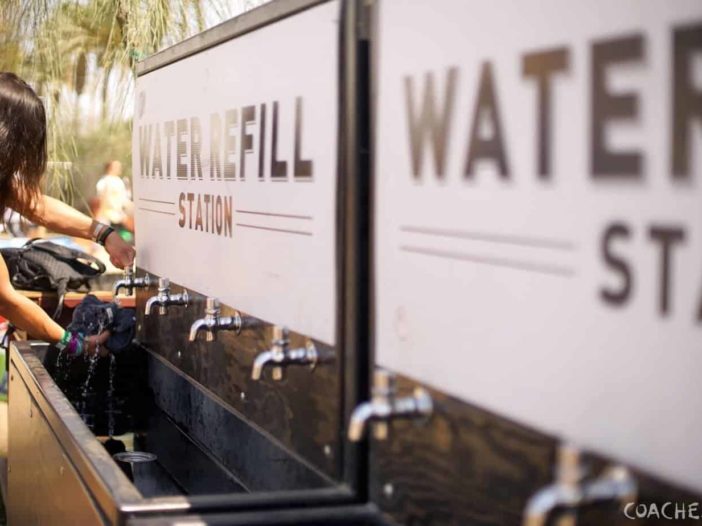During the summer, Vancouver offers many outdoor festivals and events that provide great music, entertainment, and an opportunity to bask in the sun. Many in the city are gearing up for Pride Weekend, for instance.
But outdoor events may sometimes make us overindulge and, in the hot summer sun, cause us to get dehydrated.
Here are a few tips to help you stay hydrated during festival season.
Hydration and Alcohol
Public health studies have shown that outdoor festivals tend to increase alcohol intake and substance use. And because we are outdoors in the sun, we are at risk for both dehydration and excess use of alcohol to quench our thirst.
Dehydration occurs when our body loses water more rapidly than we can replenish it, and can occur quickly when we are drinking alcohol, using substances, are exposed to warmer temperatures and move around more. By the time we feel thirsty, we may already be dehydrated and may not take in enough water to. Alcohol is not suitable as hydration because it is a diuretic. That means it causes more rapid and increased urination, contributing to bodily fluid losses more quickly.
“Dehydration can occur quickly (2 hours) in the right setting, such as hot, crowded conditions that one may encounter at a festival,” says Dr. Rob Stenstrom, Emergency Physician, St. Paul’s Hospital. “The consequences of this can be increased by pre-existing kidney problems, medications, recreational drugs, and physical activity.”
Find a map to all City of Vancouver drinking water stations
Dehydration: Signs and Preventative Measures
Often, we need water when we haven’t urinated in more than a few hours, if the urine is very dark in colour or has a strong smell. Other indicators of dehydration include headache, nausea, vomiting, and loss of consciousness At that point, hospitalizations for intravenous fluid replacement may be required.
To be preventative, the following tips can help set you up for success:
- Pack a reusable water bottle and make sure you fill it every hour, so you are drinking about 1-2 cups of water per hour if you are outdoors at a festival for a long time. This also helps breaking up alcohol intake, allowing you to rehydrate rather than use alcohol for quenching your thirst.
- Pack snacks that have a high water content such as watermelon, cucumbers, oranges and celery.
- Freeze chunks of fruit in ice cube trays and add them to your water bottle. This helps restore your fluid balance and offers a refreshing alternative to standard water.
Rehydrate Wisely
Dr. Stenstrom, , who is also a researcher with CHEOS at St. Paul’s Hospital, cautions one potential issue that can come when trying to rehydrate in hot weather over an extended period (i.e., days): “People hydrate adequately with water but fail to replace electrolytes, particularly sodium (salt). Too much free water can drive sodium to dangerously low levels, which can cause seizures, coma, and ultimately death.”
Sports drinks such as Gatorade have too much sugar, which can be further dehydrating, Dr. Stenstrom adds. So if you are going to be at a multi-day festival in hot weather, he suggests making your own oral rehydration solution (OSR) using the following recipe:

- Add all components to a large bowl.
- Stir the mixture till the sugar dissolves.
- Recipe makes one litre of ORS
“A young healthy person with mild-moderate dehydration can self-treat with this oral mixture, and does not need to go to the Emergency Department unless they are experiencing severe symptoms such as confusion, hyperthermia, vomiting, seizure, etc.,” says Dr. Stenstrom. “A healthy younger person who has moderate or worse dehydration and no serious electrolyte disturbances can be re-hydrated in a couple of hours.” Dr. Stenstrom notes that while something like Pedialyte, a pre-mixed ORS also treats rehydration, it is more expensive than the homemade version.
Here’s to staying hydrated and safe this festival season!
By Dani Renouf, RD, MSc, CDE, and Renal Resource Dietitian with Providence Health Care’s Clinical Nutrition Services.





